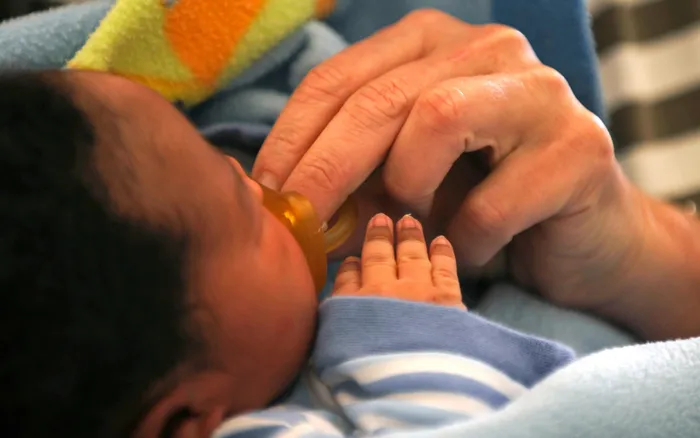Baby savers across the country on saving the infant by helping the mother

Baby savers across the country have met to discuss solutions in changing the narrative behind child abandonment. file image
Rape, poverty, abuse, and absent fathers are some of the reasons some mothers abandon their babies.
Advocates, baby savers, social workers and baby rescue homes shared data and stories of child abandonment at a webinar titled Tackling the Crisis of Child Abandonment earlier this week.
According to the data, 65% of abandoned children are newborns, 90% are under the age of one, and 70% of abandonments are unsafe, with children primarily dumped in places including toilets, dirt bins, sewers and landfills. In some cases, bodies are buried or eaten by dogs or rodents.
They said 3 500 experienced abandonment and that incomplete statistics show that at least 1 000 children survive abandonment every year.
Baby Savers SA noted that out of 269 media stories about abandonment since lockdown, 162 babies were dead.They said that Marie Stopes Clinic estimates that South Africa has 250 000 annual abortions, approximately 58% are illegal, with 5000 mothers dying every two years from illegal abortions.
“They do not just wake up one morning and say they are going to give up their baby today,” said a crisis parent at The Durban North Baby Home, Jo Theunissen.
The Western Cape Department of Social Development has confirmed that between 2018 and 2022, there have been 168 cases of child abandonment, 12 cases for this year.
“The societal challenge of ongoing child abandonment in South Africa was in the spotlight earlier this month when news broke that a 23-year-old mother had abandoned her three-month-old baby next to a stream in Verulam,” Theunissen said.
“The case made national headlines as the mother had left a heart-wrenching note with her baby’s bag of supplies, explaining how the system had let her down and how she felt that she was left with no alternative but to abandon her baby.
“Tragically, this case is just one of many cases of infant abandonment dealt with in South Africa every day. According to Law for All, there are a reported 3 500 babies deserted annually, with the Covid-19 pandemic exacerbating an already desperate situation. While some survive and go on to be homed, many do not.”
She said there were numerous reasons why mothers chose to abandon their children: “In the past seven years that we have been doing this, there has been once, maybe two instances, where I can say the mother deliberately did it or had full intention to cause her child harm.
“Poverty is a huge thing. Unfortunately, it was highlighted more with Covid-19.
“A lot of these moms have grown up in abusive relationships, in abusive households, and they do not want their children to suffer what they suffered through, and they want to give their child a better chance.
“We also live in a country with the highest rape statistics in the world. The reality is a lot of these women are rape victims. They do not just wake up one morning and say they are going to give up their baby today.”
Robyn Wolfson Vorster, writer and child activist, said the numbers were not always accurate.
“Parliamentarians put questions to the government on the number of children who are abandoned. I say that these are incomplete statistics.
“Here, there is a quote from the medical research council study on child homicide that was published in 2016 and done from 2009, and it was the time when we listed abandoned babies and children as murder statistics, which we do not anymore. If you look at the number of children who are murdered in South Africa, there was an article published in the Sowetan this week where they said that three children a day in South Africa, that does not include abandoned children.”
Pamela Mchunchu, a social worker and founder of BabyLine, is also trying to change the narrative for mothers by giving them other alternatives.
“What we do at BabyLine, we counsel mothers and give them options, and the top option being family preservation. I worked for child welfare for eight years, it has always been the main focus is preservation, but it has never been done. But how are we really doing that? I said counselling the mother and just letting her go without anything is not worth it. How about we do things that will change the mother’s situation, so that she can keep her baby and be able to provide for that baby. Many do not know what adoption entails, and many will say, if I can get a job,” she said.